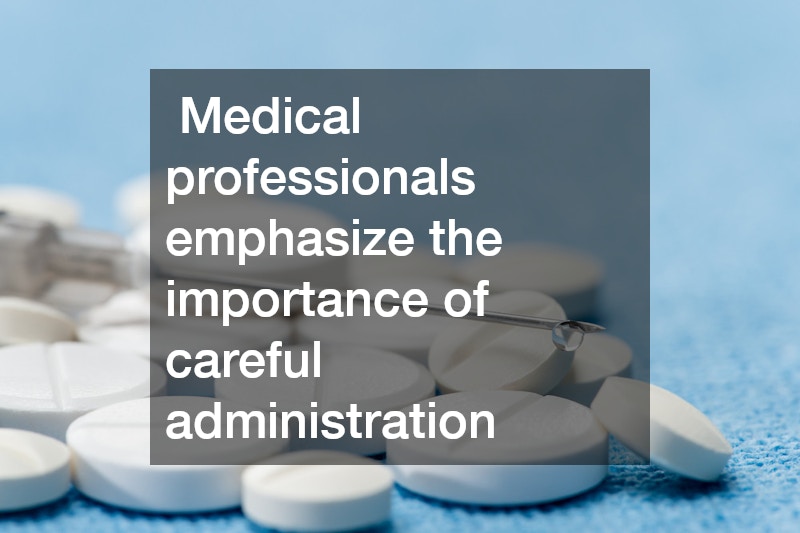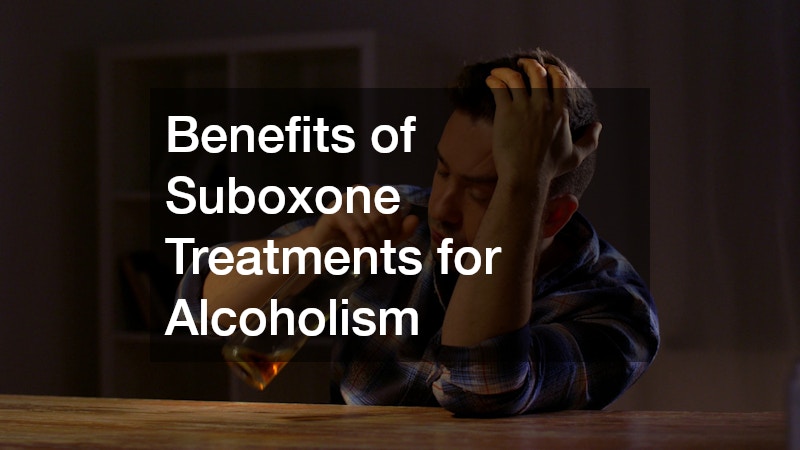Suboxone is an established treatment for opioid addiction, but has gained attention for its potential off-label use in managing alcoholism. This article explores the benefits, efficacy, and mechanism of Suboxone treatments for alcoholism in this context, aiming to enhance our understanding of how it could fit seamlessly into broader treatment plans. Although primarily utilized for opioid cessation, there might be underlying applications for alcohol-related dependencies that haven’t been thoroughly examined. The complexities of addiction demand nuanced solutions, and Suboxone could represent a promising avenue.
The Role of Suboxone in Recovery Treatment
Suboxone is a medication designed primarily for opioid addiction management, comprising buprenorphine and naloxone. Its dual-action formula aids individuals in overcoming dependency by mitigating withdrawal symptoms and cravings. Buprenorphine partially stimulates opioid receptors in the brain, reducing withdrawal effects without the intense highs associated with opioids, whereas naloxone acts as an opioid antagonist, deterring misuse. This two-pronged approach marks Suboxone as a critical instrument in addiction therapy.
Suboxone contains a mix of buprenorphine and naloxone. Buprenorphine, a partial opioid agonist, binds to the same receptors in the brain that opioids do, but with a safer, ceiling effect that diminishes the risk of overdose. Naloxone, on the other hand, is an opioid antagonist often added to discourage misuse and abuse. This combination seeks to strike a balance between alleviating withdrawal symptoms and preventing potential abuse, thus taking a comprehensive stance towards treatment.
Suboxone’s mechanism is pivotal in assisting those with addiction by stabilizing the brain’s chemistry. Buprenorphine interacts directly with opioid receptors, moderating their response and thus mitigating withdrawal symptoms and cravings. Alternatively, naloxone works primarily to counteract the effects of opioids, essentially serving as a safety net against possible abuse. Together, they operate in harmony to sustain a steady neurological environment conducive to recovery.
Using Suboxone as a Treatment for Alcoholism
The use of Suboxone treatments for alcoholism is considered off-label, but ongoing research suggests it might be useful beyond its original intention. Although Suboxone is not FDA-approved for alcohol dependency, the physiological parallels between opioid and alcohol addiction warrant exploration. These addictions often share common pathways in the brain, thereby justifying Suboxone’s potential utility in treating alcohol-related disorders under professional guidance. Patients should also be aware of how long Suboxone stays in your system, as this knowledge informs scheduling and monitoring to reduce risks during treatment.
Research into Suboxone treatments for alcoholism effects on alcohol dependence is in preliminary stages, but early findings are promising. Studies have shown that buprenorphine could potentially modify alcohol-related behaviors due to its partial agonist properties. A limited number of trials have taken place, where tentative evidence indicates a reduction in alcohol cravings among participants, compelling scientists to delve deeper into this possibility.
Medical professionals are attentive to the emerging dialogue regarding Suboxone’s use in treating alcoholism. Some clinicians have reported anecdotal success stories where patients exhibited decreased craving and sustained abstinence. Patients have noted an improved quality of life, emphasizing the therapeutic alliance built around structured Suboxone treatment plans. Such testimonials fortify the narrative that exploring Suboxone in managing alcohol use disorder could be beneficial.
Potential Benefits of Suboxone Treatment
The transition towards using Suboxone for alcoholism has showcased various potential benefits, enhancing the scope of treatment. The medication assists in curbing not just physical cravings but also psychological dependencies that frequently undermine sobriety. By providing a foundational support network, it empowers patients to resist relapse and embrace recovery.
Suboxone treatments for alcoholism can systematically alleviate cravings, making it easier for individuals to maintain sobriety by eliminating one of the primary triggers for relapse. In addressing these cravings, the medication essentially lowers the chances of returning to alcohol use, especially when combined with counseling and support groups. By stabilizing neurotransmitter activity, Suboxone reduces the brain’s compulsion to seek alcohol, offering a functional remedy for sustained recovery.
Successful treatment of alcoholism with Suboxone can lead to a comprehensive enhancement of life quality. Patients often report an uplift in personal and professional dimensions as sobriety stabilizes. The social benefits of Suboxone’s application are profound, fostering stronger relationships and facilitating productive daily routines, which are instrumental in holistic recovery from addiction.
Understanding the Risks and Side Effects
While Suboxone showcases promise in treating both opioid and alcohol addiction, it is not devoid of risks and side effects. Medical professionals emphasize the importance of careful administration and monitoring during treatment due to its potent effects. Some individuals may experience initial side effects that necessitate medical intervention to ensure they don’t disrupt the recovery process. Familiarity with Suboxone withdrawal symptoms helps patients and clinicians recognize early signs of complications and manage them effectively.
The potential role of Suboxone treatments for alcoholism is an intriguing prospect that blends traditional use with novel application. While current evidence suggests its benefits, particularly in reducing cravings and promoting sobriety, it requires thorough research and ethical deliberation. Adopting Suboxone treatments in clinical settings must be informed by comprehensive studies and considerate of both efficacy and safety, paving the way for innovative and effective addiction management strategies.





